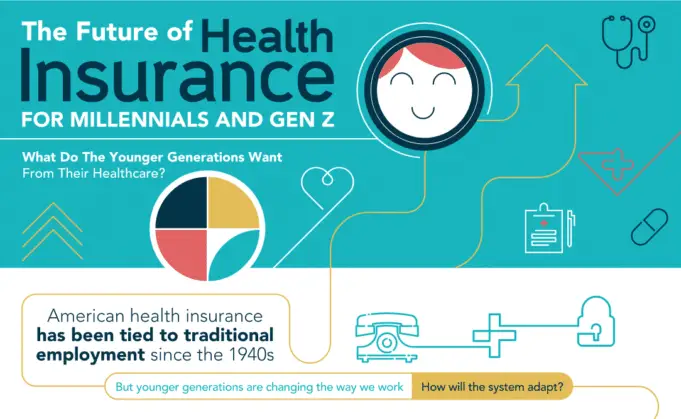For younger generations (i.e. Millennials and Gen Z), cost is key when it comes to health coverage. As a matter of fact, 84% of younger generations are more likely to ask for price quotes before booking an appointment or receiving a service.
On the other hand, only 65% of their parents’ generations – specifically Baby Boomers – are likely to ask for this same information. The normalization for younger generations to not receive health care through employment has become normalized as they take on more gig jobs and freelance work.
Traditionally in America, health coverage has been provided through employment. It is important to understand that just because younger generations are redefining work, it doesn’t necessarily discount the quality of work, or the time spent doing so.
Along these lines, 84% of Americans have experienced burnout from work – which may have influence on Americans seeking employment with more flexibility benefits.
Although irrelevant in the grand scheme of things, the number of younger Americans responsible for their own health coverage in regard to medical, dental, and life insurance is on the rise.
As a result, Millennials and Gen Z are vocalizing their dissatisfactions with the service received in comparison to the cost paid. Today, millennials are seeking an array of services from the healthcare industry upon enrollment in a policy.
This includes affordable pricing, digital communication, better office-visit experiences, and methods to insure their in-network physician is of quality before visiting. Let’s dig in.
76% of patients read online reviews from fellow patients of their desired provider before visiting. Younger generations want to know their physician is good before their visit.
Furthermore, millennials want corresponding health care to align with the digital era we live in. For example, the ability to book and pay appointments online is preferred to in-person transactions.
This can prevent call-ins to book appointment times – typically leading to lengthy wait times before booking – the need to drive to your provider’s office to pay bills, and reduce the wait time in receiving a paper bill via mail. 74% of patients prefer digital means of scheduling and paying.
Additionally, patients are longing for a more “patient-centric” healthcare experience as poor customer service is a run-in occurring far too often. 57% of millennials who switched providers report poor customer service as their reasoning.
More along these lines, millennials aren’t staying with one specific healthcare plan or insurance company long-term – for a variety of reasons.
A primary reason (with 37% of millennials engaging) is due to patients feeling like company representatives weren’t knowledgeable enough to answer their concerns about their policy coverage.
Less commonly, yet still impacting 22%, patients switched policies with reasoning of not getting a good value of cost vs. coverage.
Other reasons lie with having a poor range of options available with their former provider, and having a plan that does not support their preferred provider.
In a nutshell, patients are seeking an emphasis on customer service, transparency, and custom-to-them policies. What would this look like?
Primarily, having representatives with standards of providing clear-cut communication of what their policy covers, and what the patient will be responsible for in out-of-pocket expenses.
Furthermore, more than half of millennials prefer to rid-away with phone calls and prefer communication from providers via text, email, and videoconferencing.
Furthermore, and catering to the technologically-dependent society we live in, younger generations ask for access to their healthcare policy information via the use of mobile applications.
Millennials are 5x more likely than baby boomers to choose a carrier with better digital support and service, and younger generations find this will better suit their needs.
Lastly, the desperation for customizable policies is high. Implementing this could allow carriers to understand the needs of their policyholders, especially those with unique cases most insurance agencies do not offer standardly.
Only 1 in 3 millennials feel that the current American healthcare system treats them well – personalized policies are of the future.
Millennials are the largest chunk of the American population, yet 54% of millennials would avoid seeing a doctor to save money. It is important to value to the needs of younger generations as they transition into the massives, populatively speaking.
Continue reading for more information on the desires of the future healthcare industry from younger generations, and how the industry will adapt.













